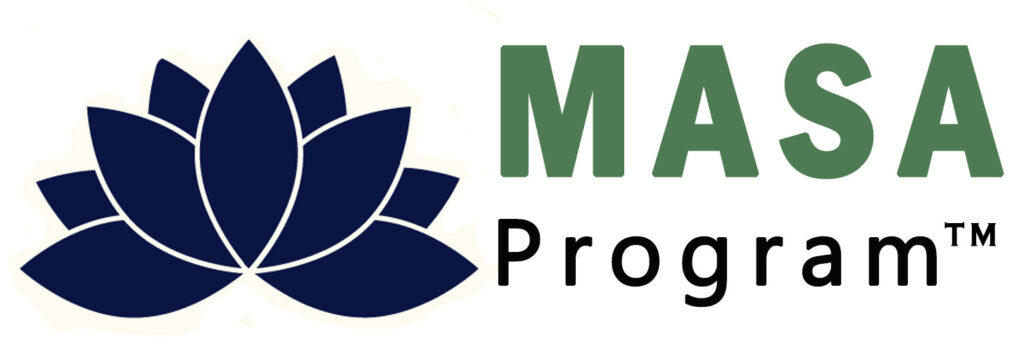MODULE 2

Dear Participants,
Thank you very much for attending our second module of the MASA Program. I hope your first week went well and that what was shared in this week’s Module 2 resonated. Please feel free to send me an email if you have any queries or feedback. Module 3 will be presented next Friday, August 23rd at 6:00 pm BST.
Your homework is to do a mindfulness practice twice daily and to use the ‘Dearest Friend’ E-book (found in Downloads) as a guide for your daily self-compassion practice. I have added meditations that focus on self-compassion (see Downloads) for you to listen to and see if any resonate. The link to Videos and Downloads can be found on page 2 (see button/link below).
Please scroll down this page to find notes from Module 2 which you may want to review to refresh your memory.
Thank you and I look forward to spending time with you again next week Monday.
With much gratitude,
![]()
WHAT IS SELF-COMPASSION?

‘
Compassion, as defined by Gilbert (2009), is a basic kindness and deep awareness of suffering and the desire and effort to relieve it. Self-compassion is a kindness and deep awareness of your own suffering, and the desire and effort to relieve it.
The Buddha said: “You can search the whole tenfold universe and not find a single being more worthy of love and compassion than the one seated here – yourself.”
Self-compassion involves treating ourselves with the same kindness and understanding that we would offer to a dear friend in times of suffering. It consists of three main components: self-kindness, common humanity, and mindfulness.
Instead of harsh self-criticism, self-compassion encourages us to recognize our own humanity and respond to ourselves with warmth and understanding.
By treating ourselves with kindness, understanding, and gentleness, we can navigate the ups and downs of this healing process with greater resilience and peace. Remember, you are worthy of compassion, acceptance and love, especially from yourself.
Note: A compassionate approach for coping and healing does not mean being passive or not taking action; it is quite the opposite. One observes the suffering, accepts its presence with gentleness and kindness, and is then proactive in finding the best ways to cope and nurture one’s self, or alleviate the suffering if possible.
Reference: Gilbert, P (2009). The Compassionate mind: A new approach to life’s challenges. London, Constable and Robinson.
BENEFITS OF SELF-COMPASSION

Self-Soothing: Self-compassion may help to reduce anxiety and stress. It can trigger the release of oxytocin which increases feelings of safety, trust and calm.
Self-Esteem: Self-Compassion helps us to step back and look at mistakes as something external. It often involves positive self-talk and being able to extend grace and understanding to ourselves, rather than criticism.
Life Satisfaction: Individuals spend less time focused on flaws and mistakes and this allows for more time doing the things that bring pleasure and spending more time interacting with people you like to be around.
Fulfilling Relationships: Because the kinder and more patient we are with ourselves, the kinder and more patient we can be with others, self-compassion can lead to more fulfilling relationships.
Reduces Depression: Self-criticism and harmful self-talk can affect mental health negatively. Being gentle, kind and loving to oneself can be the antidote.
IMPORTANT
When healing from an experience like withdrawal/PAWS, being compassionate towards oneself is extremely important. People describe feeling ‘beaten up’ by the myriad of symptoms, and what often happens is that they become resistant, critical of their bodies, impatient with the process, and are hard on themselves, in their thoughts and what they choose to believe about their situation. This, of course, compounds matters and creates more stress and further suffering. If we can acknowledge and engage with difficult situations and feelings without resisting, struggling against, or denying or suppressing what is happening, coping will be easier.
CULTIVATING & INCORPORATING MINDFULNESS,
ACCEPTANCE, & SELF-COMPASSION
MINDFULNESS:
- Daily practice
- Being mindful throughout the day, as much as you are able to
- Listening to guided meditations
- Allowing the signs of healing, etc., without judging
ACCEPTANCE:
- Accepting what you cannot change
- Noticing when you are fighting against reality – swimming upstream
- Pretending that you are already accepting and act accordingly
- Knowing that full acceptance can take time and practice and allowing yourself that grace
SELF-COMPASSION:
- Guided self-compassion meditations
- Journalling
- Supportive touch: self-hugging, soothing your forehand, etc.
- Speaking gently to yourself and changing the script when necessary.
